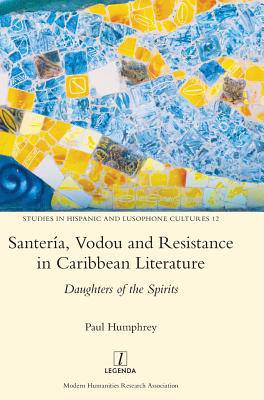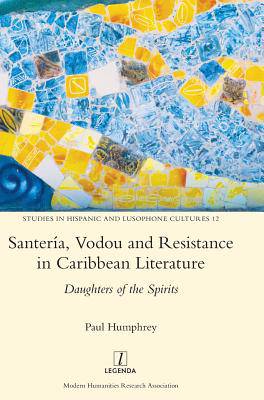
- Retrait gratuit dans votre magasin Club
- 7.000.000 titres dans notre catalogue
- Payer en toute sécurité
- Toujours un magasin près de chez vous
- Retrait gratuit dans votre magasin Club
- 7.000.0000 titres dans notre catalogue
- Payer en toute sécurité
- Toujours un magasin près de chez vous
Description
African-derived religious traditions like Santería and Vodou have long been a site of political, cultural and social resistance in the Caribbean. Through his focus on the body as the juncture between the physical and spiritual planes, Humphrey's analysis of a number of Caribbean novels and plays foregrounds the complex nature of women's negotiation of religious, social and political life as participants in these marginalized religious communities. Examining works from authors such as Cuban playwright Eugenio Hernández Espinosa (1936-), Haitian novelists Kettly Mars (1958-) and Marie Chauvet (1916-1973), and Cuban-Puerto Rican writer Mayra Montero (1952-), he demonstrates the manner in which the worldviews offered by Santería and Vodou permit the divisions within and between concepts such as gender, sexuality, womanhood, space and nation to be transcended. As a result, not only do these narratives resist and subvert hegemonic and patriarchal discourses, but also provide a means through which the voice of the marginalized can be heard.
Paul Humphrey is Assistant Professor in World Languages and Cultures at Monmouth University, New Jersey.
Spécifications
Parties prenantes
- Auteur(s) :
- Editeur:
Contenu
- Nombre de pages :
- 206
- Langue:
- Anglais
- Collection :
- Tome:
- n° 12
Caractéristiques
- EAN:
- 9781781887028
- Date de parution :
- 25-02-19
- Format:
- Livre relié
- Format numérique:
- Genaaid
- Dimensions :
- 170 mm x 244 mm
- Poids :
- 530 g

Les avis
Nous publions uniquement les avis qui respectent les conditions requises. Consultez nos conditions pour les avis.






